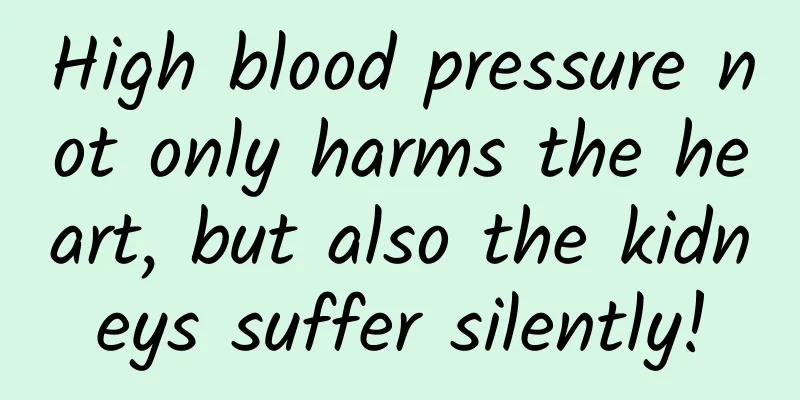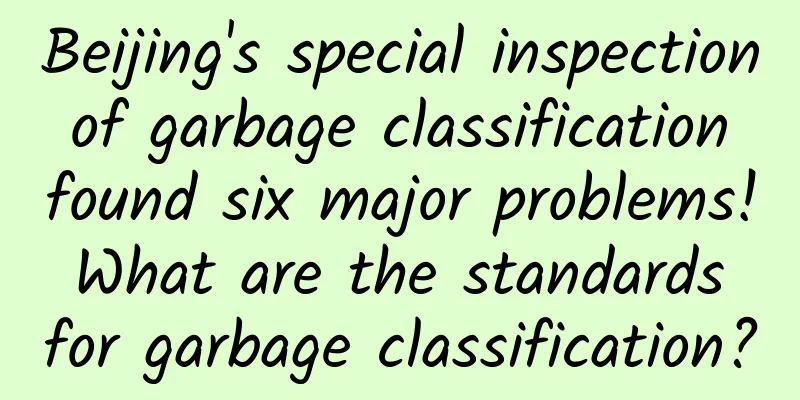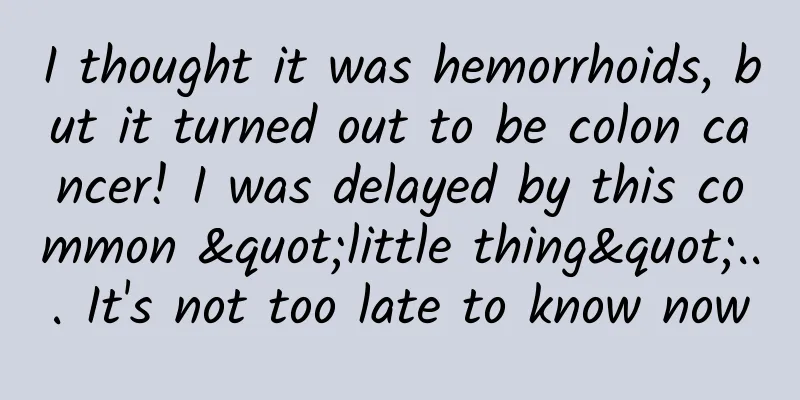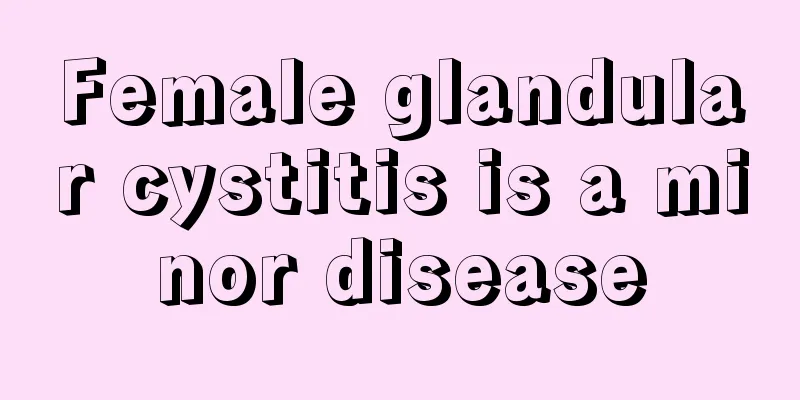High blood pressure not only harms the heart, but also the kidneys suffer silently!

|
In the public's perception, high blood pressure is often closely linked to heart disease. Indeed, high blood pressure is an important risk factor for heart diseases such as coronary heart disease and heart failure. However, what is less known is that the damage that high blood pressure causes to the kidneys should not be underestimated. The kidneys silently suffer from the huge damage caused by high blood pressure. How high blood pressure harms your kidneys Renal vascular disease The human kidney is like a sophisticated filtration factory, filled with densely packed small blood vessels, which are responsible for transporting blood to the kidneys and maintaining normal physiological functions. When the body is in a state of high blood pressure for a long time, the pressure on the blood vessel walls continues to increase, just like a balloon that is constantly being blown up and gradually becomes fragile. In order to cope with this high pressure, the blood vessel walls will compensatory thickening, and the lumen will gradually narrow. This is like the inside of a water pipe becoming scaled and narrowed, and the flow of water will be hindered. As a result, the blood supply to the kidneys is reduced, and the glomeruli cannot obtain sufficient blood for effective filtering, which seriously affects the normal metabolism and excretion functions of the kidneys. Glomerular damage The glomerulus is the core filtering unit of the kidney. It is composed of a network of capillaries and is responsible for filtering metabolic waste and excess water from the blood to form urine. Vascular lesions caused by hypertension will directly affect the blood perfusion of the glomeruli, causing the pressure in the glomeruli to increase. This high-pressure state is like a heavy burden, oppressing the glomeruli for a long time. The capillary walls of the glomeruli are gradually damaged under high pressure, and the originally tight structure becomes loose, causing macromolecules such as proteins to leak out of the blood vessels and enter the urine to form proteinuria. Proteinuria is an important sign of kidney damage, which means that the filtration barrier of the glomeruli has been damaged. If not intervened in time, the glomeruli will gradually harden and lose their normal filtering function, leading to renal failure. Tubulointerstitial damage In addition to the glomeruli, the tubulointerstitium also cannot escape the "clutches" of hypertension. Renal ischemia caused by hypertension can lead to tubulointerstitial hypoxia, which in turn triggers a series of inflammatory responses. Under this harsh environment, the tubular epithelial cells will gradually atrophy and die, and the reabsorption and secretion functions of the tubules will be impaired. At the same time, the inflammatory response will also promote interstitial fibrosis, the normal tissue structure of the kidneys will be destroyed, the kidneys will gradually become harder and smaller, and their function will continue to decline. The development of hypertensive renal damage The development of hypertensive renal damage is usually relatively hidden, and there may be no obvious symptoms in the early stages. Some patients may only find microalbuminuria during a physical examination, which is an early "distress signal" sent by the kidneys, but it is easily ignored. As the disease progresses, proteinuria will gradually increase, and patients may experience symptoms of increased nocturia, which is because the concentrating function of the renal tubules is damaged. At this time, the patient's renal function has begun to decline, but there may still be no obvious discomfort. When renal function deteriorates further, indicators such as blood creatinine and urea nitrogen will increase, and patients may experience symptoms such as fatigue, loss of appetite, nausea, and vomiting, which indicates that the kidneys can no longer maintain the body's metabolic balance normally, and the disease has developed to a more serious stage. If effective treatment is not carried out, it may eventually develop into end-stage renal disease, which is what we often call uremia. At this time, the patient needs to rely on dialysis or kidney transplantation to maintain life. Methods for preventing and controlling hypertensive renal damage Strictly control blood pressure Controlling blood pressure is the key to preventing and treating hypertensive kidney damage. Patients should follow the doctor's advice, take antihypertensive drugs on time, and control blood pressure within the target range. Generally speaking, for patients with hypertension and kidney disease, blood pressure should be controlled below 130/80 mmHg. At the same time, patients should pay attention to measuring blood pressure regularly, understand their blood pressure changes, and adjust treatment plans in time. Healthy Lifestyle Maintaining a healthy lifestyle is essential for controlling high blood pressure and protecting kidney health. First, eat a healthy diet and reduce sodium intake. The daily salt intake per person should be controlled below 6 grams. At the same time, increase potassium intake and eat more fresh vegetables and fruits. Secondly, exercise moderately and do at least 150 minutes of moderate-intensity aerobic exercise per week, such as brisk walking, jogging, swimming, etc. Exercise can enhance physical fitness, lower blood pressure, and improve blood supply to the kidneys. In addition, quit smoking and limit alcohol, avoid staying up late, and maintain a good attitude, all of which help maintain stable blood pressure and protect kidney health. Regular medical check-ups Regular physical examinations are an important means of early detection of hypertensive kidney damage. Especially for patients with hypertension, renal function, urine routine, urine microalbumin and other indicators should be checked regularly to detect signs of kidney damage in time and take effective treatment measures. Early intervention can delay the progression of the disease and improve the patient's quality of life. The damage caused by high blood pressure to the kidneys is a gradual and cumulative process. Although it is silent, the consequences are serious. We must fully realize the harm of high blood pressure and pay attention not only to heart health but also to kidney protection. By controlling blood pressure, maintaining a healthy lifestyle and regular physical examinations, we can effectively prevent and control high blood pressure kidney damage and keep the kidneys away from the threat of high blood pressure. |
>>: Kidney crisis in diabetic patients: how to avoid the 'sweet burden'?
Recommend
Causes of acne on girls' faces
We also call acne vulgaris. Acne is one of the mo...
Is TCM effective in treating polycystic ovary syndrome?
In the treatment of polycystic ovary syndrome, pe...
What does the oil on condoms do to your uterus?
Correct use of condoms can reduce the risk of con...
Why do I get acne on my chin before my period?
I believe that in life, many female friends have ...
Bleeding after curettage
In life, there are always some women who need to ...
New Pad leads a simple digital life – data infographic
The focus of the digital media industry is on a r...
Brown discharge after period
Many female friends have this problem: after thei...
Obstetrics and gynecology nursing: caring starts from pregnancy
Pregnancy and childbirth are undoubtedly the most...
When will menstruation resume after induced abortion?
Some women may have to undergo induced abortion d...
Why do eggs smell even though they are not bad? What is the difference between selenium-enriched eggs and ordinary eggs?
Eggs contain a lot of protein, which will increas...
Is uterine fluid water or blood?
Intrauterine effusion is a very common gynecologi...
Disposable chopsticks and your favorite nuts may be "attacked" by sulfur dioxide?
When browsing the Internet, have you ever seen ne...
Is cervical erosion of degree 3 serious?
Cervical erosion is the most common type of gynec...
Attention! These five types of food are most likely to cause poisoning, so be careful!
In fact, it is not uncommon for a family to fall ...
What is the cause of blood in the vaginal discharge after menstruation?
Menstruation is the most important physiological ...









